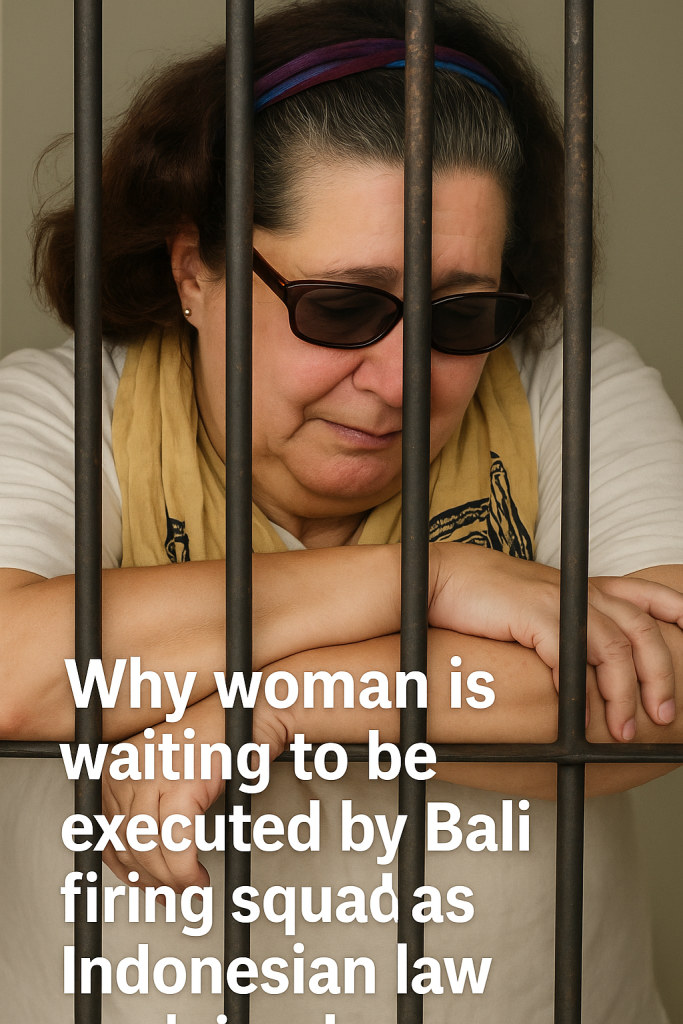A woman who has spent over ten years on death row in Bali, Indonesia, is now waiting to face execution by firing squad—a punishment that remains legally sanctioned under Indonesian law. As her final moments approach, she has expressed a poignant last wish, drawing renewed attention to the country’s controversial capital punishment practices and the legal framework that supports them.
The woman’s background and her time on death row
Convicted for drug trafficking—a crime that carries the death penalty under Indonesian law—the woman has been held in detention since her arrest more than a decade ago. Indonesian authorities maintain a strict stance against drug offenses, with a policy designed to deter trafficking by imposing capital punishment on serious offenders. Her case has become emblematic of the ongoing debate about Indonesia’s use of firing squads to carry out executions.
Indonesian law and the firing squad method
Indonesia formally reinstated the death penalty for drug-related crimes in the early 2000s. The law mandates execution by firing squad, typically carried out at remote locations after a series of legal appeals and administrative procedures. The firing squad is composed of several marksmen, and one or more rifles are loaded with blanks to spare the executioners the psychological burden of carrying out an actual killing. The process is designed to be swift, and executions have been known to occur following years of incarceration.
Despite strong international criticism from human rights groups and foreign governments, Indonesia continues to uphold this practice, arguing it is necessary to confront the country’s drug crisis. The government also emphasizes that the legal process is exhaustive and aimed at guaranteeing fairness before an execution proceeds.
The woman’s final wish and its significance
In the days leading up to her scheduled execution, the woman has reportedly made a heartfelt final request that reflects both her humanity and the gravity of her situation. While specific details of her wish have not been fully disclosed, sources indicate it involves reconnecting with loved ones and seeking forgiveness—elements common to final statements made by those facing death in custody.
This expression highlights the emotional and psychological toll on inmates awaiting execution for extended periods. Spending over a decade in incarceration before the final sentence is carried out adds layers of trauma, underscoring ongoing concerns among advocates about the mental health and rights of death row prisoners.
Current status and the debate on capital punishment
As of 2024, the woman remains under close supervision, with officials preparing for the possibility of imminent execution. Her case continues to provoke dialogue about the death penalty’s place in modern society, particularly in Indonesia’s Muslim-majority context, where legal rulings must often balance strict statutory mandates and Islamic ethical considerations.
Critics argue for a moratorium or abolition of capital punishment, citing the irreversible nature of the penalty and the potential for judicial error, while supporters insist it remains a vital deterrent against serious crimes like drug trafficking. The woman’s story has become a focal point in this national conversation, humanizing the abstract legal and moral debates.
Whether her final wish will be honored and how Indonesian authorities navigate this final chapter remain to be seen. Her story serves as a sobering reminder of the complexities surrounding justice, punishment, and human dignity in the face of legal finality.



